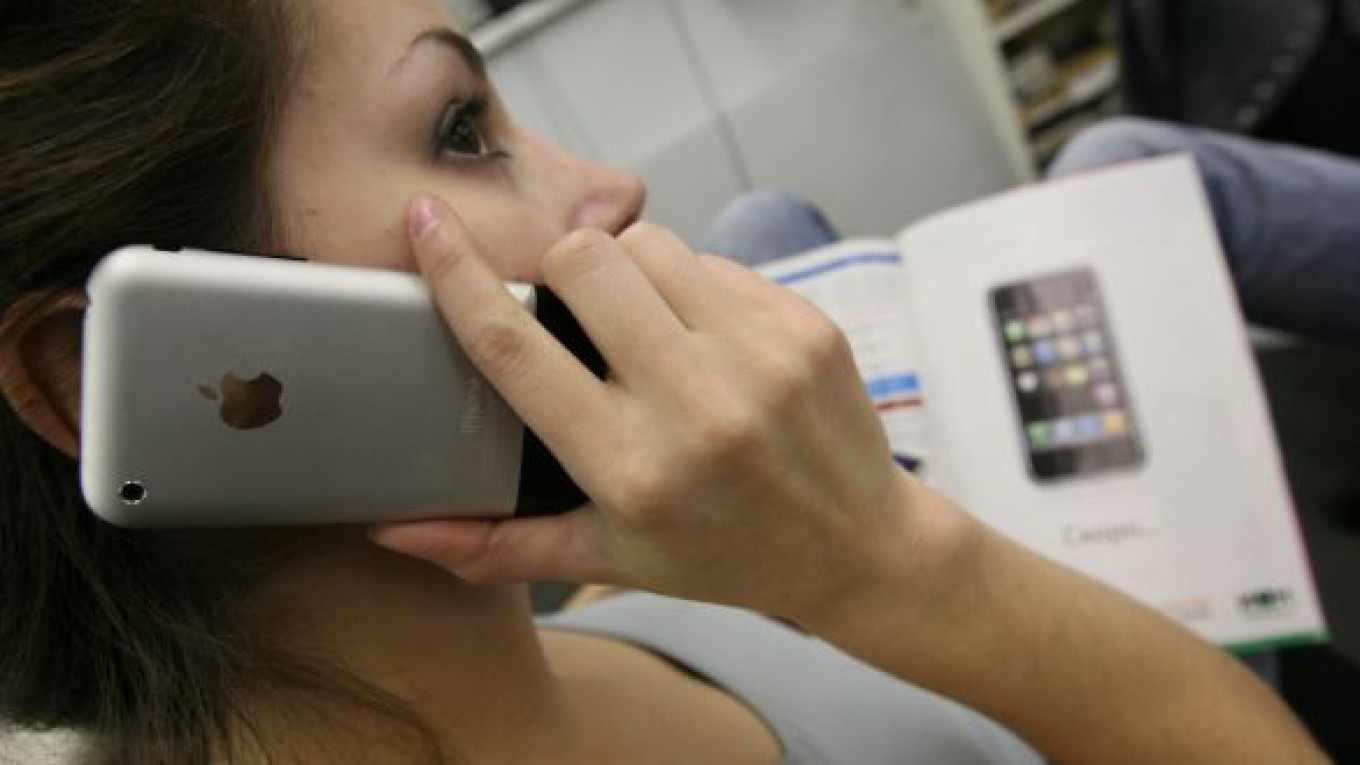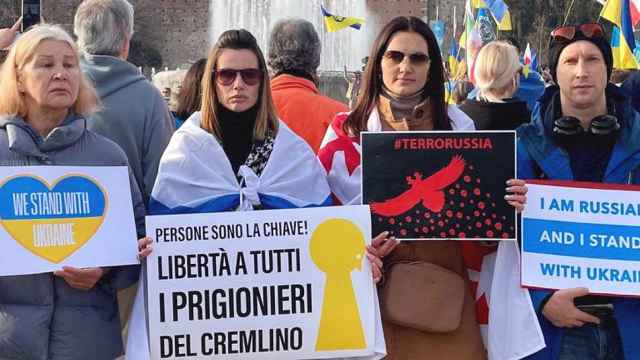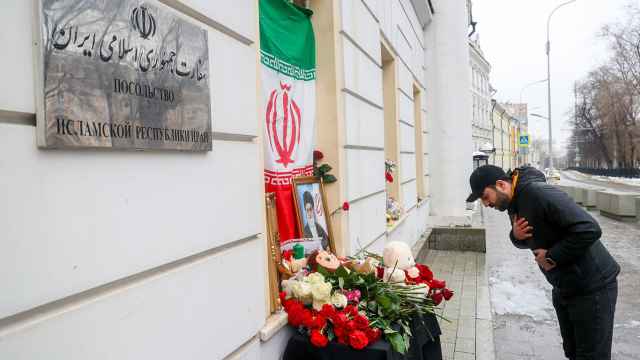The fight against corruption has gone mobile.
Last week, a group of young Russian entrepreneurs released Bribr, the first iPhone application that enables users to anonymously report bribes and, with the data, composes a nationwide bribery map.
The app's makers, led by creator Yevgenia Kuida, 25, a former senior editor at culture magazine Afisha, hope that it will help raise awareness about corruption and change behaviors.
"If you see everywhere that bribery is bad, maybe somewhere in the back of your mind, your attitude toward bribery is going to change, at least a little bit," she said by telephone on Monday.
The program quickly received endorsements from top opposition leaders, including television host Ksenia Sobchak and anti-corruption blogger Alexei Navalny, who on Twitter called the app "Cool!"
Bribr was downloaded 7,000 times in the first two days, Kuida said, and by Tuesday, 1.4 million rubles ($45,000) in bribes had been reported.
It takes about a minute to report a bribe via the app. Users indicate how much was paid, to whom it was paid, for what and where.
Users choose from a list of officials, from health inspectors to university administrators, followed by a list of "for what" appropriate to that profession. Thus, "cops and investigators" can be bribed for permits and documents, to close or open a criminal case, or not to open a case.
Crowdsourcing has been a wildly popular anti-corruption tool in India and other developing countries, but it never really caught on in Russia, where Bribr-like websites have come and gone.
To succeed where its predecessors have failed, Bribr must do more than collect data, Transparency International's Yelena Panfilova said.
"People who report corruption fall into two categories. The first do it for fun, while the second category, the majority, want to see results," she said by telephone on Monday.
If users don't see bribe-takers — and in some cases bribe-givers — being punished, they will be discouraged from reporting corruption at all, she said.
"Public awareness sometimes isn't enough," she added. "People want the next step, they want advocacy."
Bribr's team of more than 20 volunteers is working hard to encourage reporting, including by adding a new feature that allows users to tell their stories and by distributing symbolic "zero ruble" banknotes, Kuida said.
"It's relatively easy to change people's minds. The reaction to bribery needs to be really strong. If you engage in bribery, then you should hear, 'Are you crazy? What do you think you're doing?'" she said.
Russia ranked 143rd out of 183 countries on Transparency International's 2011 corruption perceptions index. The Information for Democracy (INDEM) think tank has estimated that corruption costs the country some $300 billion to $500 billion annually, a significant portion of Russia's $1.5 trillion gross domestic product.
Related articles:
A Message from The Moscow Times:
Dear readers,
We are facing unprecedented challenges. Russia's Prosecutor General's Office has designated The Moscow Times as an "undesirable" organization, criminalizing our work and putting our staff at risk of prosecution. This follows our earlier unjust labeling as a "foreign agent."
These actions are direct attempts to silence independent journalism in Russia. The authorities claim our work "discredits the decisions of the Russian leadership." We see things differently: we strive to provide accurate, unbiased reporting on Russia.
We, the journalists of The Moscow Times, refuse to be silenced. But to continue our work, we need your help.
Your support, no matter how small, makes a world of difference. If you can, please support us monthly starting from just $2. It's quick to set up, and every contribution makes a significant impact.
By supporting The Moscow Times, you're defending open, independent journalism in the face of repression. Thank you for standing with us.
Remind me later.






